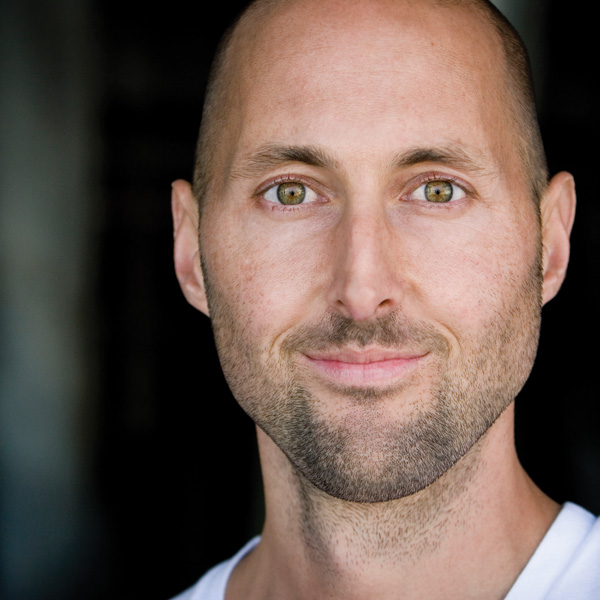Known as “the mother of mindfulness,” Ellen Langer, PhD, is one of the world’s leading research scientists and the first female professor to gain tenure in Harvard University’s psychology department. She’s spent several decades exploring what she calls “the psychology of possibility.”
While most researchers describe what “is,” Langer passionately explores what “may be.”
In Counterclockwise, Langer walks us through a fascinating array of inspiring, empirical studies exploring the subtle and not-so-subtle effects that the mind and language can have on our health. She also shows how mindfulness can help us improve our lives.
The book is named after her classic 1979 “counterclockwise” study, which chronicled the stunning physical improvements enjoyed by a group of elderly men who spent a week together acting as if they were 20 years younger. We’ll explore that research and some of her other remarkable findings.
The Power of Possibility
Traditional psychology is interested in normative behavior and conformity. But Langer argues that there’s also value in the study of what’s possible.
“The psychology of possibility first requires that we begin with the assumption that we do not know what we can do or become,” she writes.
“Rather than starting from the status quo, it argues for a starting point of what we would like to be. From that beginning, we can ask how we might reach that goal or make progress toward it.”
Here’s an example of Langer’s method. Imagine a study testing whether monkeys could learn language. Traditional psychology would focus on whether the majority of monkeys tested showed a particular effect. If they didn’t, the study would be shelved and go unpublished. The psychology of possibility, however, would determine whether one monkey could speak one word. With that success, the study has demonstrated that it’s at least possible. Then you’d see if you could get the monkey to speak two words and then three, and so on.
The psychology of possibility encourages us to ask ourselves how we can do it instead of whether we can do it.
Resetting the Clock
It’s 1979. Sixteen men in their late 70s and early 80s are recruited to join a study on “reminiscing.” For her pioneering “counter-clockwise” research, Langer and her team converted an old monastery into a 1959-themed retreat — complete with old Sports Illustrated magazines, movies, and music from the era.
The control group was asked to spend a week simply reminiscing about their lives in 1959, while the experimental group was asked to act as if it were 1959 — speaking and behaving as if they were 20 years younger.
Testing the men before and after, Langer and her team discovered marked physical improvements in both groups. “On many of the measures, the participants got ‘younger.’ The experimental group showed greater improvement in joint flexibility, finger length (their arthritis diminished and they were able to straighten their fingers more), and manual dexterity,” she writes.
“On intelligence tests, 63 percent of the experimental group improved their scores, compared with only 44 percent of the control group. There were also improvements in height, weight, gait, and posture. Finally, we asked people unaware of the study’s purpose to compare photos taken of the participants at the end of the week with those submitted at the beginning of the study. These objective observers judged that all of the experimental participants looked noticeably younger at the end of the study.”
All those results were achieved after just one week. Makes you wonder: If the mind has that much power over the body in such a short period of time, what else is possible?
Reversing Zeno’s Paradox
The basic idea of Zeno’s paradox — familiarized by the story of Achilles and the tortoise — is this: If you always cover half the distance between where you are and where you want to be, you’ll always have farther to go. Langer reverses that logic by telling us that there’s always a tiny step we can take in the direction of our goals.
“Ever the optimist in the eyes of others but the realist in my own, I’ve found a simple, positive use of this thinking that I call Reverse Zeno’s Strategy,” she explains. “It states that there is always a step small enough from where we are to get us to where we want to be. If we take that small step, there’s always another we can take, and eventually a goal thought to be too far to reach becomes achievable.”
For example, maybe you’re trying to lose 50 pounds, and it feels impossible. Langer might ask you to instead focus on losing 1 ounce. Ask yourself what baby step you could take to lose that single ounce, because if you can do that, you can lose another and another, and sooner than you may think, you’ve made the impossible possible.
When we shift our thinking in this more mindful direction, we can see how slight variability in our behavior leads to significant results.
Your Relationship to Aging
Did you know that your attitude about aging can have a bigger influence on your longevity than lowering your blood pressure or cholesterol or whether or not you smoke? That’s what Langer found when she revisited the subjects of her “counterclockwise” study years later.
She writes, “Having a positive attitude made far more difference than any to be gained from lowering blood pressure or reducing cholesterol, which typically improve lifespan by about four years. It also beats the benefits of exercise, maintaining proper weight, and not smoking, which are found to add one to three years.”
Mindfully choosing to ignore society’s negativity about the aging process and choosing to get excited about the process of evolving and growing is good for your health. And that opens the door to all sorts of possibilities.
Download a PDF summary of Ellen Langer’s Counterclockwise.
Watch a Summary of Counterclockwise
Optimal Living 101
Explore more profound insights and practical wisdom from leading thinkers by diving into our Optimal Living 101 series.
More About the Author of Counterclockwise
Ellen Langer, PhD, is the author of 11 books — including the international bestseller Mindfulness, which has been translated into 15 languages —and more than 200 research articles. Langer’s trailblazing experiments in social psychology have earned her inclusion in the New York Times Magazine’s “Year in Ideas.” A member of the psychology -department at Harvard University and a painter, she lives in Cambridge, Mass.





This Post Has 0 Comments